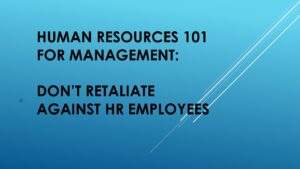 It’s that time of the year when people make their new year’s resolutions. For many, this includes goals to quit smoking, lose weight, or exercise more. Increasingly, however, employers are making employment decisions based on workers’ personal lifestyle choices. Are these employers going too far?
It’s that time of the year when people make their new year’s resolutions. For many, this includes goals to quit smoking, lose weight, or exercise more. Increasingly, however, employers are making employment decisions based on workers’ personal lifestyle choices. Are these employers going too far?
In the past, one’s personal life was considered separate from his or her work life, as long as job performance was not affected. Such is not the case anymore. Employers are increasingly enacting policies that restrict employees’ off work activities and even their weight. Case in point, in 2010 an El Paso hospital announced it would not hire applicants who smoked or used tobacco products. While we can all agree that smoking is bad for one’s health, this employer is banning potentially qualified applicants for off-duty behavior that is legal.
Smokers are not a protected class under federal anti-discrimination laws, and while many states have smoker protection laws, Texas is not one of them. Employers need to be aware, however, that an absolute ban on hiring smokers is not without legal risk. Depending on the facts of a specific case, a smoker could allege that the employer “perceived” him or her as being disabled or having an impairment – which would violate the Americans with Disabilities Act (ADA) if proven. Some have even asserted that nicotine addiction might be considered a disability, although I am not aware of any court decisions accepting that argument.
Last year, another Texas hospital announced that it would not hire applicants with a body mass index of 35 or higher. To put that in perspective, a 6 foot, 258 pound man would be automatically disqualified from consideration for any job at this hospital, regardless of his education, background or experience. You can calculate your BMI here.
Like smokers, severely obese people are not a protected class under discrimination laws. However the ADA has always provided protections against workplace discrimination where it was proven that severe obesity was a symptom of an underlying medical condition, such as diabetes. Until recent years, however, courts were unwilling to provide ADA protections to so-called “voluntary” obesity that had no physiological source. This is beginning to change.
As a result of amendments to the ADA which broadened the definition of “disability”, courts are beginning to focus on the impairments caused by severe obesity, rather than the source of the condition. As a few courts have observed, the voluntariness (of the obesity) is irrelevant, noting that several other health conditions covered under the ADA, such heart disease, cancer, AIDs and alcoholism are either caused or exacerbated by voluntary conduct.
Employers may want to take heed, and make their employment decisions based on factors that actually relate to the job, rather than workers’ weight or off duty activities.
“ Well, if you mind your business, then you won’t be mindin’ mine.”
– Hank Williams Jr. lyrics from “Mind Your Own Business”





